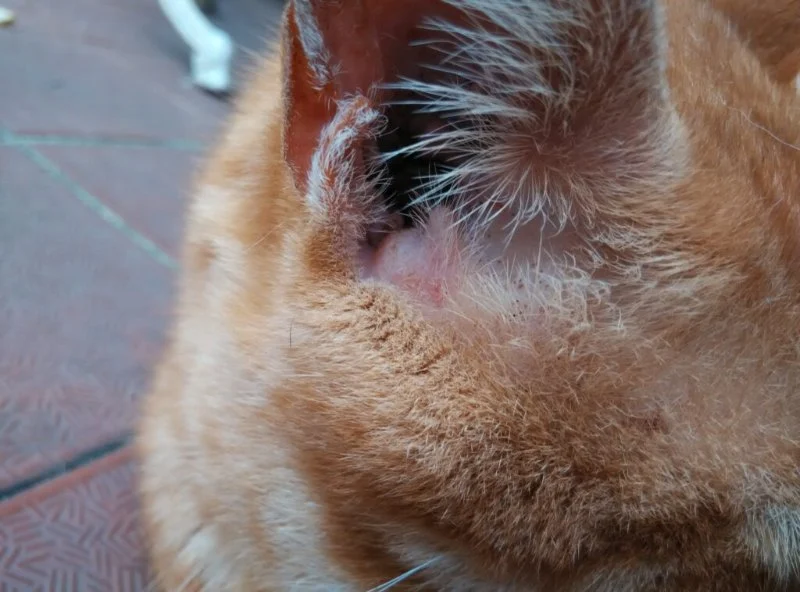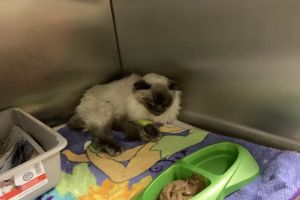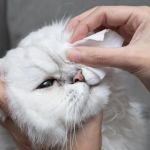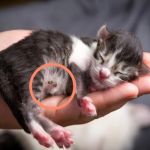
- 1. Introduction: Understanding Cat Ear Health
- 2. Common Causes of Black Stuff in Your Cat’s Ears
- 3. How to Clean Your Cat’s Ears Safely
- 4. When to See the Veterinarian
- 5. Preventing Ear Problems in Cats
1. Introduction: Understanding Cat Ear Health
As a pet owner, it's essential to monitor your cat’s health, and one of the more alarming issues you might encounter is the presence of black stuff in your cat's ears. This can be unsettling, but it’s a common issue that can arise due to various reasons. If your cat’s ears are dirty or discolored, it may be a sign of a deeper problem, such as an infection, ear mites, or even allergies. Understanding what this black discharge means and how to deal with it is crucial for maintaining your cat’s overall health.

Great Neck Animal Hospital
Great NeckNassau CountyNew York
660 Northern Blvd, Great Neck, NY 11021, USA
2. Common Causes of Black Stuff in Your Cat’s Ears
The black material in your cat’s ears may not always be the same. It could be wax, dirt, or even a sign of a more serious condition. Here are some common causes:
- Ear Mites: Ear mites are one of the most common causes of black ear discharge in cats. These tiny parasites live in the ear canal and feed on wax and oils. They leave behind a dark, coffee-ground-like substance that can cause itching and irritation.
- Ear Infections: Bacterial or fungal infections can lead to a buildup of discharge in the ear. Infections often cause more severe symptoms like a bad odor, redness, and swelling, along with black or brown ear wax.
- Allergies: Cats with allergies may develop excess ear wax and itching, leading to black buildup. The reaction may be triggered by food allergies, environmental factors, or flea bites.
- Dirty Ears: Sometimes, the cause of black stuff in the ears is simply a lack of proper cleaning. Dust, dirt, and excess oils can accumulate over time, leading to dark-colored buildup.
3. How to Clean Your Cat’s Ears Safely
Regular ear cleaning is vital to ensure your cat’s ears remain healthy. Here’s how you can clean your cat's ears safely:
- Use a Pet-Specific Cleaner: Avoid using human products like alcohol or hydrogen peroxide. Instead, purchase a cat-safe ear cleaning solution from your vet or pet store.
- Gently Wipe the Ear: Apply a small amount of cleaner to a cotton ball or soft gauze pad. Gently wipe the inside of the ear, being careful not to insert anything into the ear canal.
- Don’t Over-Clean: Over-cleaning can irritate your cat’s ears. It’s essential to clean only when necessary, such as when there is visible buildup.
- Watch for Discomfort: If your cat shows signs of discomfort, such as shaking their head or trying to scratch their ears more than usual, stop cleaning and consult with a vet.
4. When to See the Veterinarian
If you notice black stuff in your cat’s ears that doesn’t improve with cleaning, or if your cat shows any of the following symptoms, it’s important to seek veterinary care:
- Persistent or Foul-Smelling Discharge: If the discharge continues to accumulate or has a strong, unpleasant odor, it could indicate an infection.
- Itchy or Inflamed Ears: If your cat is scratching their ears excessively or the ears appear red and swollen, they may have an ear infection or mites.
- Behavioral Changes: If your cat becomes unusually aggressive, withdrawn, or shows signs of discomfort, these could be signs of an underlying issue.
- Balance Issues: If your cat appears unsteady or has difficulty walking, this could be related to an ear infection affecting their balance.
5. Preventing Ear Problems in Cats
Preventing ear problems in cats is easier than treating them once they occur. Here are some tips for keeping your cat's ears healthy:
- Regular Check-ups: Keep an eye on your cat’s ears during regular grooming sessions. Check for signs of irritation, dirt, or wax buildup.
- Keep Ears Dry: Moisture can lead to infections, especially in cats that are prone to ear problems. Keep their ears dry, especially after baths or swimming.
- Use Preventative Products: If your cat is prone to ear mites, ask your vet about preventive treatments that can help avoid infestations.
- Maintain a Clean Environment: Keep your cat’s living area clean and free from fleas, dust, and allergens that may contribute to ear irritation.
If you're concerned about your cat’s ear health, it’s always best to consult with your veterinarian. For expert advice and the best ear care products, visit Omnia Pet.







 Hollywood Feed4.0 (184 reviews)
Hollywood Feed4.0 (184 reviews) Brew Biscuits5.0 (2 reviews)
Brew Biscuits5.0 (2 reviews) All Friends Animal Hospital4.0 (446 reviews)
All Friends Animal Hospital4.0 (446 reviews) Kittylandkittens LLC0.0 (0 reviews)
Kittylandkittens LLC0.0 (0 reviews) Village Animal Clinic4.0 (212 reviews)
Village Animal Clinic4.0 (212 reviews) Rift Lake Aquatics4.0 (165 reviews)
Rift Lake Aquatics4.0 (165 reviews) Understanding Pet Insurance: What Does It Actually Cover?
Understanding Pet Insurance: What Does It Actually Cover? How to Keep Your Kitten's Eyes Clean and Free of Discharge
How to Keep Your Kitten's Eyes Clean and Free of Discharge The Truth About Heartworm Disease: Prevention is Cheaper Than Cure
The Truth About Heartworm Disease: Prevention is Cheaper Than Cure Why Is My Kitten's Belly Button Showing? | Omnia Pet
Why Is My Kitten's Belly Button Showing? | Omnia Pet Why Does My Cat Bite Me Gently? Love Bites Explained
Why Does My Cat Bite Me Gently? Love Bites Explained How to Stop Your Kitten from Getting into Cabinets
How to Stop Your Kitten from Getting into Cabinets